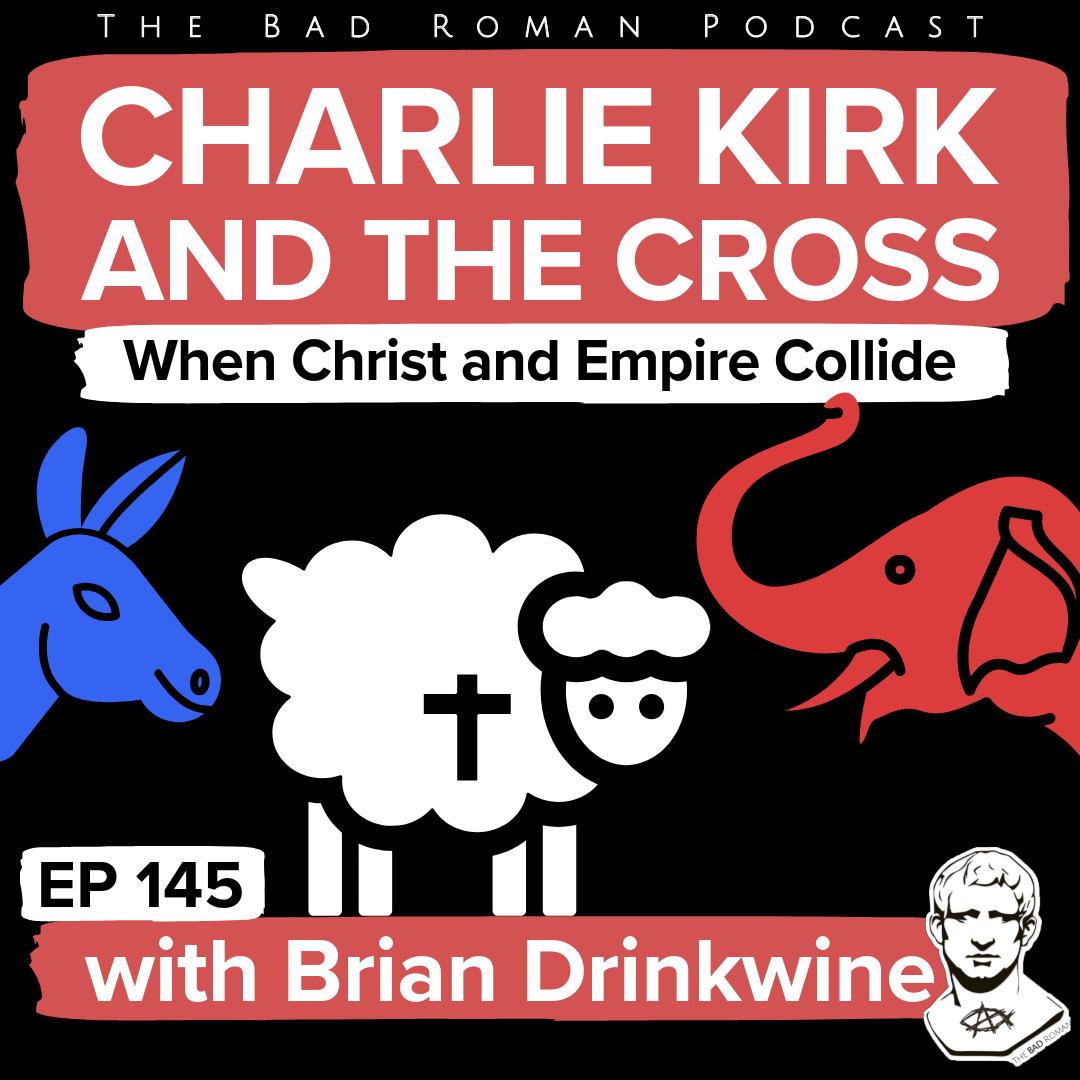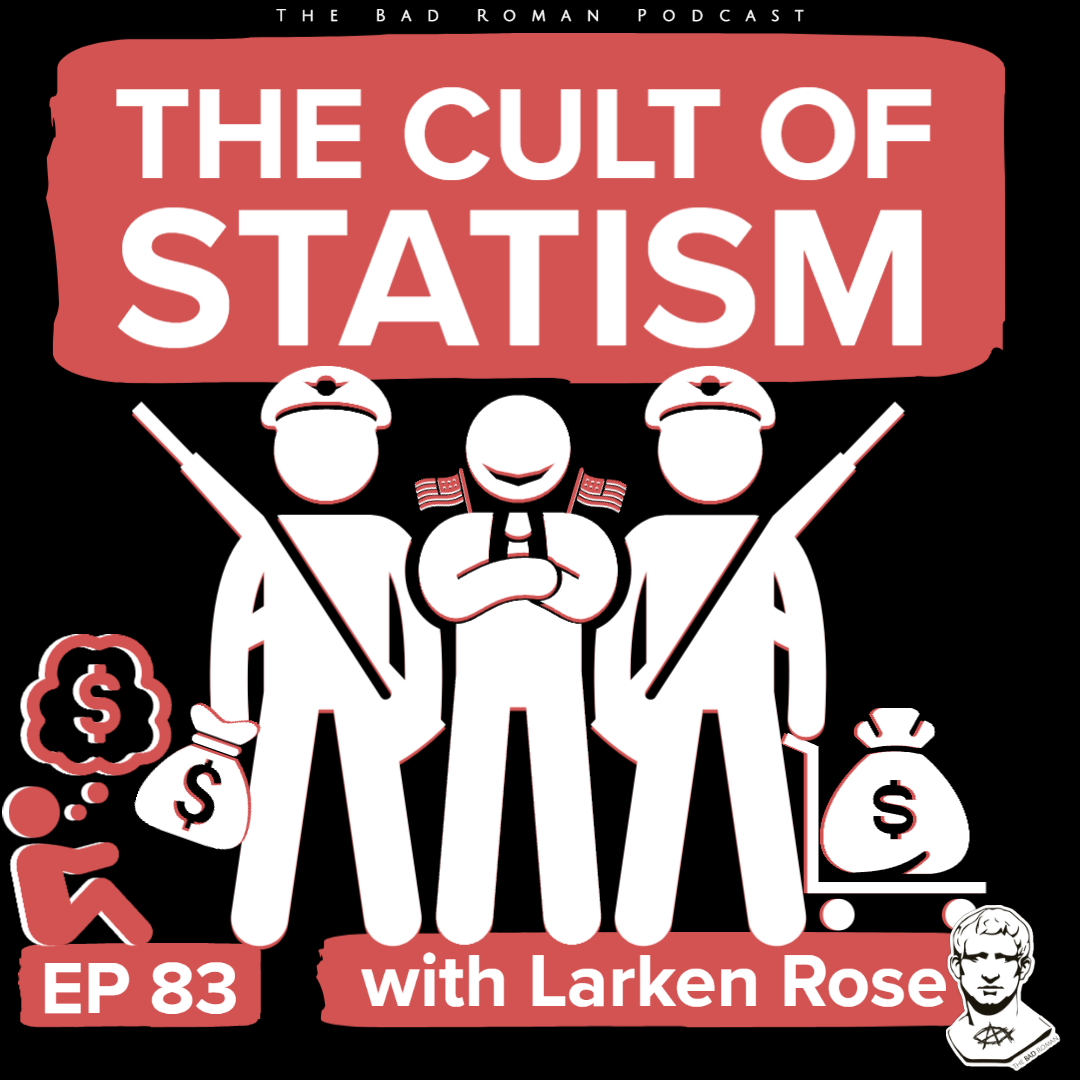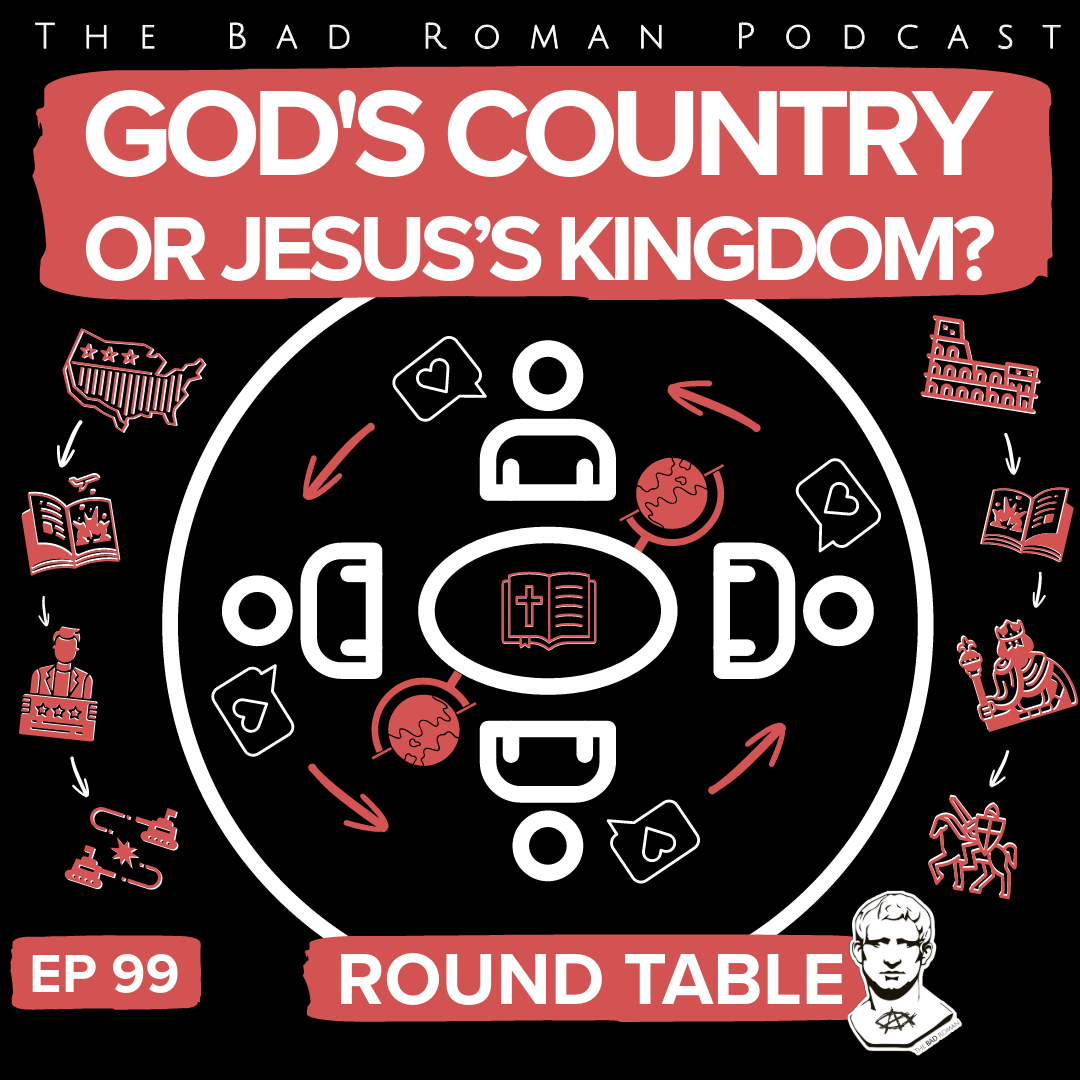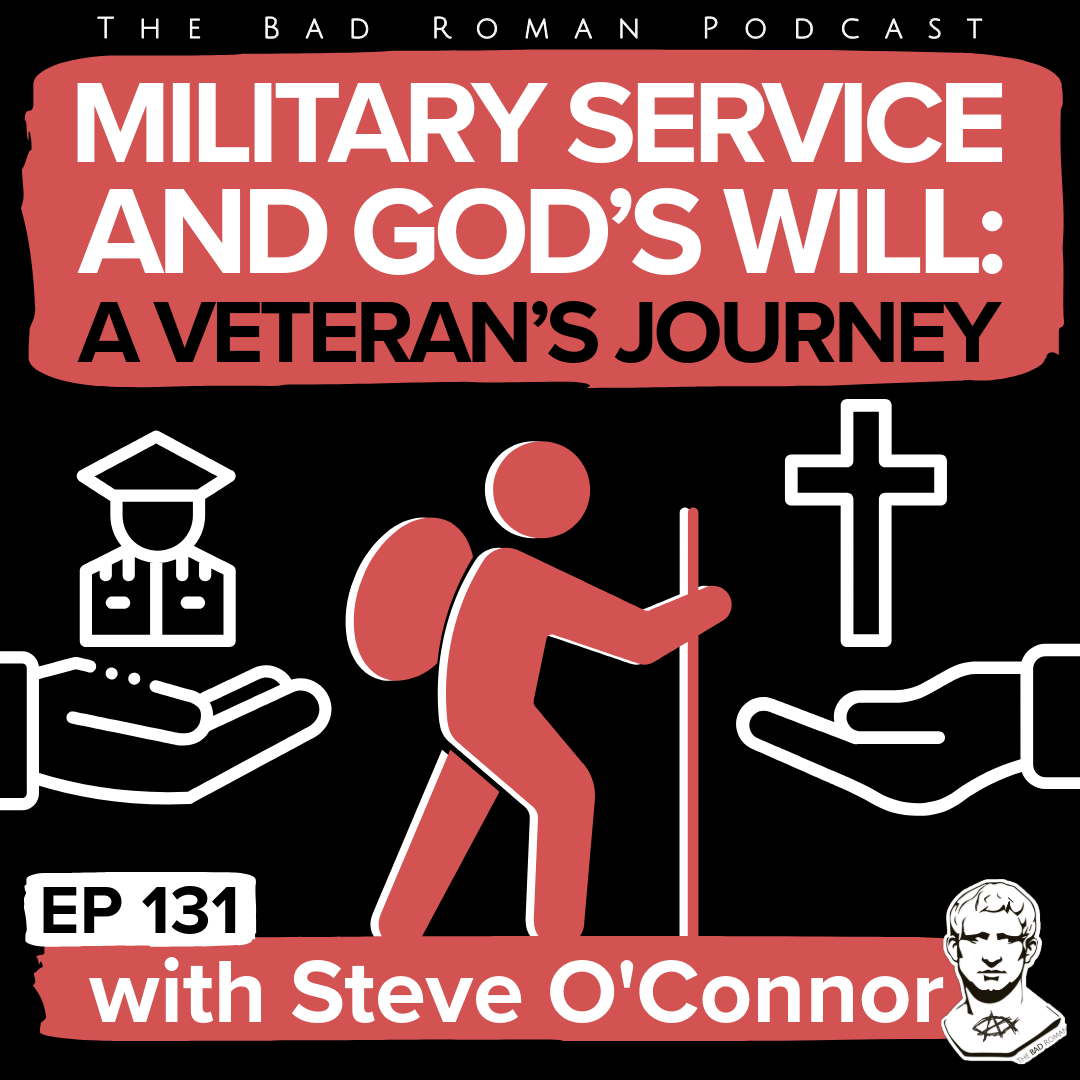When you hear “Judas Iscariot,” what comes to mind? Most of us picture betrayal — the silver coins, the kiss in the garden. But what if Judas’s real mistake wasn’t greed, it was compromise? What if he wasn’t just a traitor, but the first disciple to decide that Jesus would be more effective with a little help from the government?
In this episode of The Bad Roman Podcast, Craig Hargis welcomes back Domenic Scarcella, author of Good Neighbor, Bad Citizen, to ask a provocative question:
👉 Was Judas the original Christian nationalist?
The Respectable Disciple: Judas as the “Normie”
Domenic doesn’t see Judas as a cartoon villain. He sees him as the reasonable one, the disciple who wanted Jesus to tone it down a bit, to play nice with the powers that be.
“Judas is the guy who wanted Jesus to be more compatible with the government,” Domenic says. “He’s the first person to think the Kingdom would work better if it looked a little more like the empire.”
That’s what makes Judas so hauntingly familiar. He’s not the rebel in the shadows; he’s the insider trying to make Jesus palatable to power.
Imposter Faith: Antichrist vs. Contra Christ
Judas’s story isn’t just about betrayal; it’s about the distortion of discipleship. Domenic draws a line between being against Christ (contra) and trying to replace Him (anti).
“Anti doesn’t mean ‘against,’” he explains. “It means ‘imposter.’ That’s what makes Antichrist worse than Contra Christ — trying to change Jesus into something else.”
That’s the heart of Christian nationalism: turning Jesus from the Lamb who lays down His life into the lion who roars for our tribe. And it’s not new. It’s just Judas’s logic reborn, century after century.
The Politics of Coercion
Craig and Domenic agree — Jesus never used force to accomplish His mission. Not once. His Kingdom runs on persuasion, not power.
“There are zero examples in the Gospels of Jesus using coercion,” Domenic says. “But there are plenty of examples of Him confronting coercion — especially in institutions.”
That contrast cuts deep in an age when many still believe we can vote the Kingdom in.
You can’t legislate love your enemies.
You can’t bomb your neighbor and call it freedom.
You can’t baptize coercion and call it righteousness.
Constantine’s Shadow: From Cross to Crown
What Judas began in miniature, Constantine perfected in empire.
Once Christianity became the state religion, the incentives flipped.
It no longer cost you to follow Jesus — it paid.
“To be Christian used to mean giving up power,” Domenic notes. “After Constantine, it meant gaining it.”
That shift is what Domenic calls the inflection point of history — when Christendom traded cruciform faith for political privilege. And that’s the same trade Christians still make today every time we seek safety, status, or influence instead of obedience.
The Illness That Didn’t Kill the Body
If Judas represents the infection, the miracle is that the Body of Christ still lives. Seventeen hundred years of compromise haven’t destroyed the Church — because grace, not greatness, keeps it alive.
“Our imperfections aren’t deal breakers,” Domenic says. “They’re the reason the Gospel exists.”
The Church’s survival isn’t proof that it got politics right; it’s proof that Jesus still heals, still forgives, still chooses imperfect people to bear His name.
Faithfulness Over Familiarity
Judas’s betrayal wasn’t a rejection of Jesus — it was a rebranding of Him. He wanted a Jesus who would “fit,” who could climb the ladder and earn the world’s respect. Sound familiar?
It’s the same spirit that drives churches to bless flags, defend wars, and fear being called unpatriotic. But the Gospel doesn’t need a PR strategy. It needs a people willing to live as if Jesus meant what He said.
No King but Christ
Domenic sums it up with quiet conviction:
“Judas was the normal one. The faithful ones were the weirdos.”
That’s the paradox of the Kingdom. The weirdos — the ones who refuse to kneel to Caesar, who love enemies instead of destroying them — are the ones who look most like Jesus.
Maybe faithfulness has always looked like being a bad Roman.
Listen & Reflect
🎧 Listen to the full episode: Judas the OG Christian Nationalist: Imposter Faith vs. the Politics of the Lamb with Domenic Scarcella — available on all major podcast platforms.
💬 Question for reflection:
If Judas’s mistake was trying to make Jesus more “respectable,” where might we be doing the same today.
📖 Scriptures to Revisit:
Matthew 26 | Luke 22 | John 13 | Acts 1 | 1 John 2 | Philippians 2:5–8 | Matthew 6:24
🤝Connect with Domenic Scarcella:
Audio Content: Sunday Buffet Podcast & The Friday Meditation Radio
Substack: Good Neighbor, Bad Citizen
Twitter (X) @GoodNeighBadCit
Highlights & Takeaways
Judas wasn’t a rebel; he was reasonable, and that’s what made him dangerous.
Antichrist means “imposter,” not “opponent.” Judas wanted to change Jesus, not reject Him.
Jesus never used coercion, His power is persuasion through love.
Constantine’s alliance with empire flipped Christianity’s social incentives.
Seventeen centuries later, the Church still struggles with Judas’s temptation: respectability over faithfulness.
The remnant remains, imperfect people living out “No King but Christ.”
Grace keeps the Gospel alive even in a compromised Church.
The call isn’t to fix empire, but to embody the Kingdom.
EPISODE TIMESTAMPS
(0:22) Judas: the OG Christian nationalist?
Craig introduces returning guest Domenic Scarcella
Previous episode with Domenic: Christianity Unpacked in "Good Neighbor, Bad Citizen" with Domenic Scarcella
Framing Judas as the “normie” disciple tempted by respectability
(1:05) “Good Neighbor, Bad Citizen”
Recapping Domenic’s first appearance in 2023
Why this conversation still matters
(1:58) What Domenic’s been building
Substack essays, Sunday Buffet, and Friday Meditation Radio
Expanding from book to movement
(4:02) Five years of The Bad Roman
Craig reflects on God’s provision and the journey so far
Finding content in divine timing, not worry
(7:26) Judas as “the normal guy”
Respectable, pragmatic, compromise-driven
Why that’s more dangerous than open opposition
(11:42) “Judas 8:2” and the mercy of Jesus
Jesus feeds and washes the feet of His betrayer
What real mercy looks like in a world of self-interest
(13:55) Setting the Holy Week scene
Jesus teaches in public, tensions rise in the temple
How power fears love that won’t be controlled
(20:16) Modern parallels
Lockdowns, fear, and Christians who “went along to get along”
Choosing safety over truth and calling it obedience
(21:35) The deal that wasn’t
Judas overplays his hand; the priests use him for their agenda
When compromise becomes complicity
(26:05) Antichrist vs. Contra Christ
Domenic’s key distinction: imposter faith vs. honest rejection
Why trying to change Jesus is worse than denying Him
(30:10) Coercion and the Kingdom
No Gospel precedent for force
How Jesus subverts coercion with voluntary love
(34:03) Constantine’s inflection point
From persecuted faith to state-approved religion
When “Christian” became a brand of empire
(38:16) Three models of church–state fusion
Hosios’s “Two Swords,” Ambrose’s “Overlap,” Eusebius’s “Co-Regency”
Different roads to the same compromise
(47:50) The remnant remains
Good neighbors, bad citizens, the politics of the Lamb
The hope of faithfulness in small numbers
(53:25) Imperfect messengers, perfect Gospel
Grace, not purity, sustains the Church
How God uses flawed voices for truth
(56:42) Where to find Domenic
Substack, Sunday Buffet, Meditation Radio
Continuing the conversation
🔗 Join the Movement🔗
Blog submissions: thebadroman.com/contribute-to-the-blog
Connect with us on social: thebadroman.com/social-links
Want to get more involved? Request to join the private discussion group on Facebook (Bad Romans Only!!)
No King but Christ Network:nokingbutchristnetwork.com
💕 Support the Project 💕
If this conversation with Domenic on Judas as the OG Christian nationalist helped you refocus on Jesus, not party, not power, please consider supporting The Bad Roman Project.
Your gift keeps “No King but Christ” in the feed and pushes back against the impulse to baptize coercion. As always, 100% of donations above production costs go to local Memphis charities.
🌶️ SALSA THE LOVE 🌶️
Donations are cool, but salsa is spicy (or mild, Judas 👀). Every jar fuels episodes that challenge Christian entanglement and call us back to Jesus’ way.
Join the craze at badromansalsa.com and snack your way to more Kingdom conversations.
FREE ACTION: Share the Episode, Start a Conversation with a Fellow Christian
Know a friend who thinks “Christian nation” is the point? Send them this episode with Domenic Scarcella and spark a better conversation:
Are we following Jesus, or asking Him to bless our politics?
If Judas tried to make Jesus respectable to rulers, are we doing the same?









































